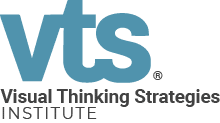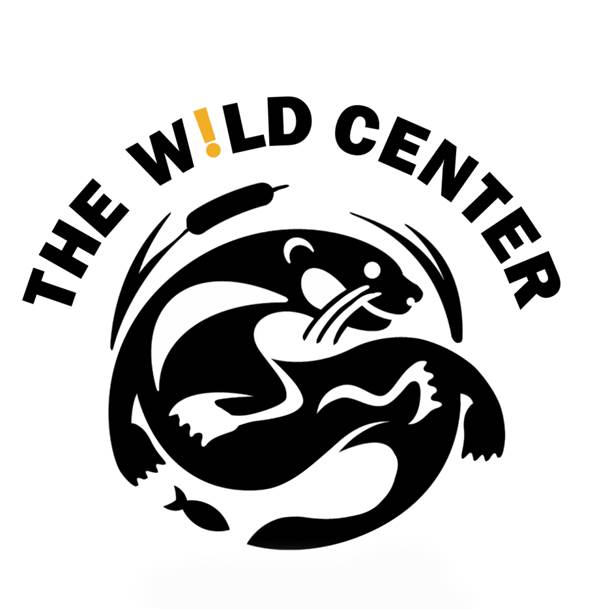Transforming How We See, Teach, and Learn
We assume we understand what we see, but visual literacy is not innate. Grounded in the research of Dr. Abigail Housen, Visual Thinking Strategies (VTS) recognizes that visual understanding develops through guided practice. Traditional, lecture-based teaching fails to meet the needs of most learners. VTS was designed to do better.
The VTS Institute is a nonprofit whose mission is to share proven strategies to build visual literacy. At once a curriculum, a pedagogy, and a professional development model, VTS invites educators to look closely, listen deeply, and build meaning together—turning classrooms, museums, and clinics into spaces of connection and real learning.
For over 30 years, VTS has helped educators make learning more accessible, effective, and meaningful—especially for those left out by conventional approaches. Our team of educators and arts professionals is committed to evidence-based teaching that meets learners where they are and builds on what they bring. As we are inundated by information and our attention frays, VTS offers a path to deeper understanding—together.
Our Mission
We follow the mission of our founders, Dr. Abigail Housen and Philip Yenawine: to transform teaching and learning by sharing practices that reliably build visual learning for everyone.
As the nonprofit home of Visual Thinking Strategies, the VTS Institute has, for over 30 years, trained educators to lead open-ended, art-based discussions that strengthen observation, critical thinking, communication, and collaboration. As the originators of this widely adopted method, we continue to set the gold standard for VTS practice.
Grounded in decades of research—including Dr. Housen’s pioneering work on aesthetic development—VTS shifts education from content-based lectures to student-driven discovery, making learning joyful, rigorous, and equitable.
Our training equips educators with tools to spark curiosity, deepen thinking, and make space for every voice—in classrooms, museums, and healthcare.
Our Vision
We envision a world where:
Open discussion is the norm.
Students and professionals in classrooms, museums, and clinics are invited to draft ideas out loud, bring their whole selves, listen to one another, and co-construct meaning—honoring differing perspectives.
Visual literacy is non-negotiable.
Visual and critical thinking skills are treated as essential, not extras—taught, practiced, and valued.
Access is widened.
High-quality, arts-based learning reaches communities and students who have been historically excluded. Educators understand the needs of beginners and design learning that is genuinely accessible.
High standards define the field.
A strong, connected network of VTS practitioners upholds rigorous standards of facilitation, training, and ongoing learning—with the VTS Institute as a hub.
Our Values
Shared Inquiry
We learn by looking together, asking real questions, and listening.
Full Participation
The more voices in the room, the richer the discussion.
Evidence-Based Teaching
We focus on practices that demonstrably deepen learning.
Continuous Learning
We hold our work—and ourselves—with curiosity and humility, even when it’s uncomfortable. There is always more to see and to understand.
Equitable Environments
Education and the arts have been shaped by inequity. We continue to examine and evolve our own work, and prioritize a shared commitment toward learning and reflection.
Our History

Abigail Housen
Co-Founder, Principal Researcher, Visual Thinking Strategies
Abigail Housen’s lifetime of research into visual learning—what she called Aesthetic Development—is the foundation of Visual Thinking Strategies (VTS). Beginning in the 1960s and ’70s, she wondered why so few people felt comfortable in museums and began examining how people respond to art. She and her research teams—including Karin De Santis—conducted tens of thousands of interviews across age and background, cataloguing kinds of thinking and empirically mapping how engagement with art deepens through time spent looking.
We assume we understand what we see — but visual literacy isn’t innate. Dr. Housen’s research showed that understanding what we see takes practice, and that traditional teaching rarely offers it. Her findings were groundbreaking: she identified many forms of engagement—questions, judgments, associations, laughter, uncertainty—as meaningful and often overlooked paths to learning. Housen earned her Ed.D. from the Harvard Graduate School of Education in 1983 with a dissertation validating her measure of Aesthetic Development and the developmental stages of visual learning. She later became Professor and Director of the Graduate Program in Art Education at Massachusetts College of Art and consulted widely for museums and schools.
While evaluating education programs at the Museum of Modern Art, in the 1990s, she met Philip Yenawine, then head of education. After demonstrating that existing programs were ineffective, the two co-founded Visual Understanding in Education, the predecessor to VTS, and co-authored the VTS curriculum. Their goal was to bring more effective, evidence-based practice to teachers—especially those working with beginners and communities with limited access to art—and expand access to the deep learning art can spark.
Housen continued her pioneering research until the onset of Alzheimer’s late in life. She died in 2020. Her many studies—and her determination to follow the evidence rather than the experts—opened museum galleries, clinics, and classrooms around the world to the murmur of people talking, disagreeing, and building meaning together. We stand on her work, which not only deepened visual literacy, critical thinking, and collaboration, but also laid the groundwork for more engaging, inclusive, and effective educational practices across disciplines. In Memoriam: Abigail Housen

Philip Yenawine
Co-Founder, Visual Thinking Strategies
As co-founder of Watershed Collaborative, Philip Yenawine continues to develop new ways of supporting VTS adoption in schools and museums in the U.S. and abroad. Philip is the co-founder of Visual Understanding in Education (VUE) and the co-author of the VTS curriculum. He has been developing curricula and professional development that is used in hundreds of schools and institutions around the world since the early 1990s. Philip was the Director of Education at the Museum of Modern Art, New York from 1983-93. He also worked in 1992-94 as consulting curator at the Institute for Contemporary Art, and during the academic year 1993-94, as visiting professor of art education at Mass College of Art, both in Boston. He is on the Board of Art Matters, a foundation supporting contemporary artists. Yenawine is the author of How to Look at Modern Art, Key Art Terms for Beginners, and has written six children’s books about art. His most recent book, Visual Thinking Strategies: Using Art to Deepen Learning Across School Disciplines, was published by Harvard Education Press in October 2013.
As Creative Director at Watershed Collaborative, Philip continues to work closely with teachers and inquiry-based learning. He remains an ambassador for VTS, speaking at museums and other forums around the world.






